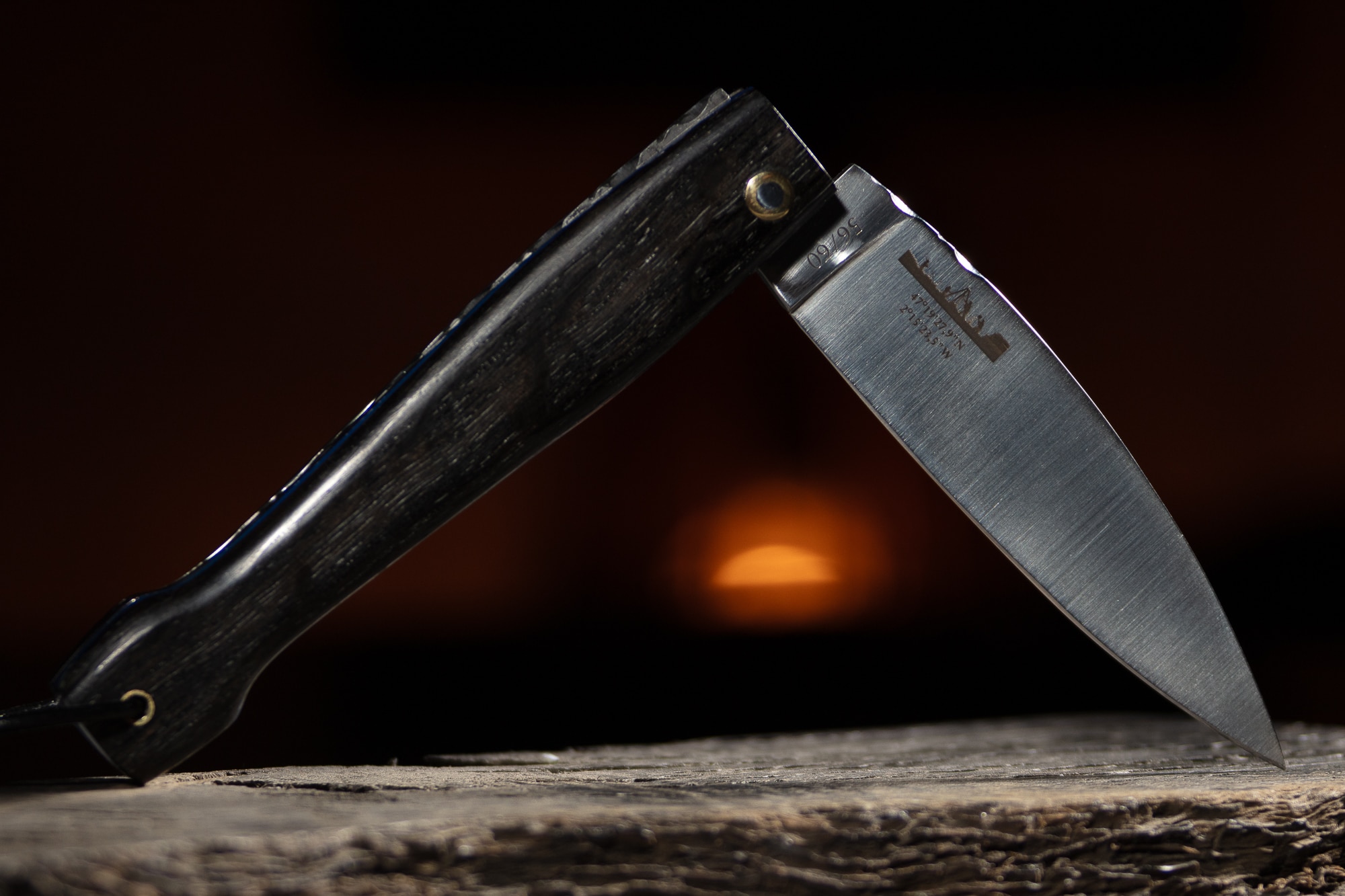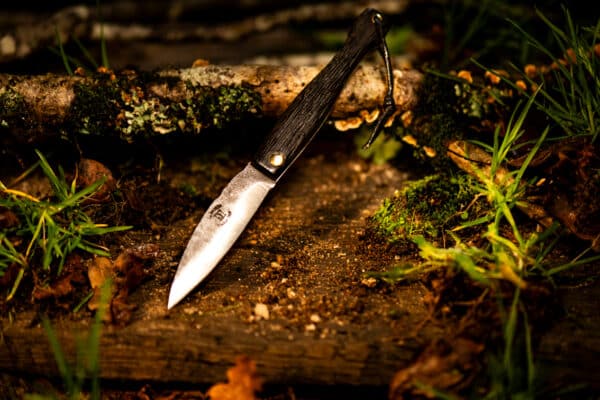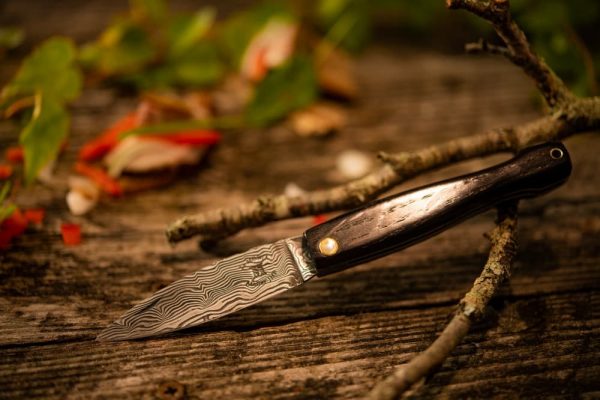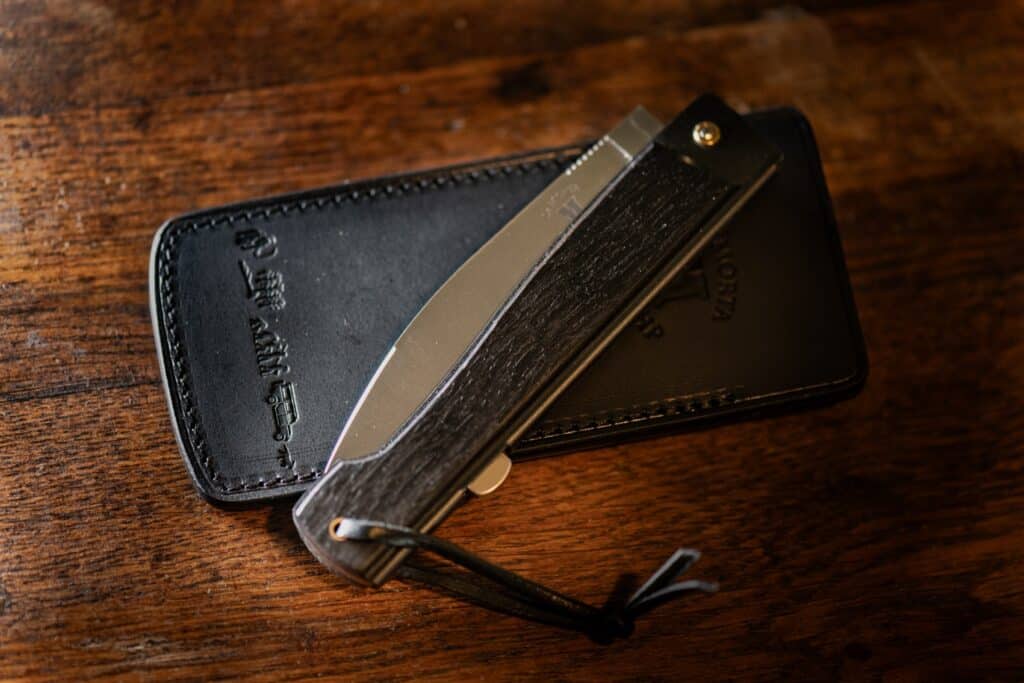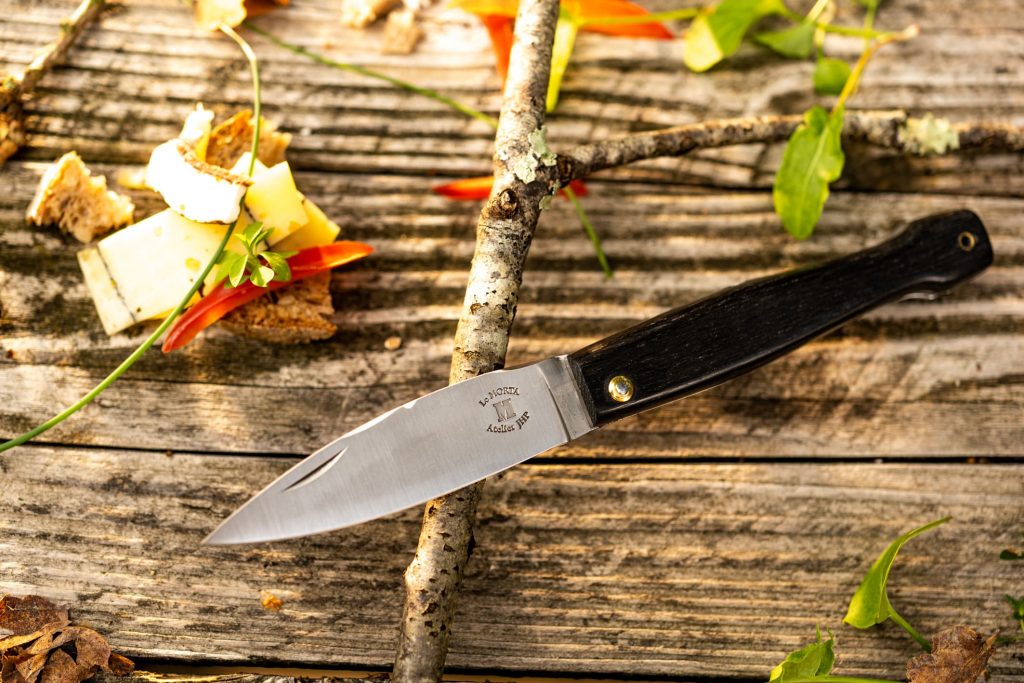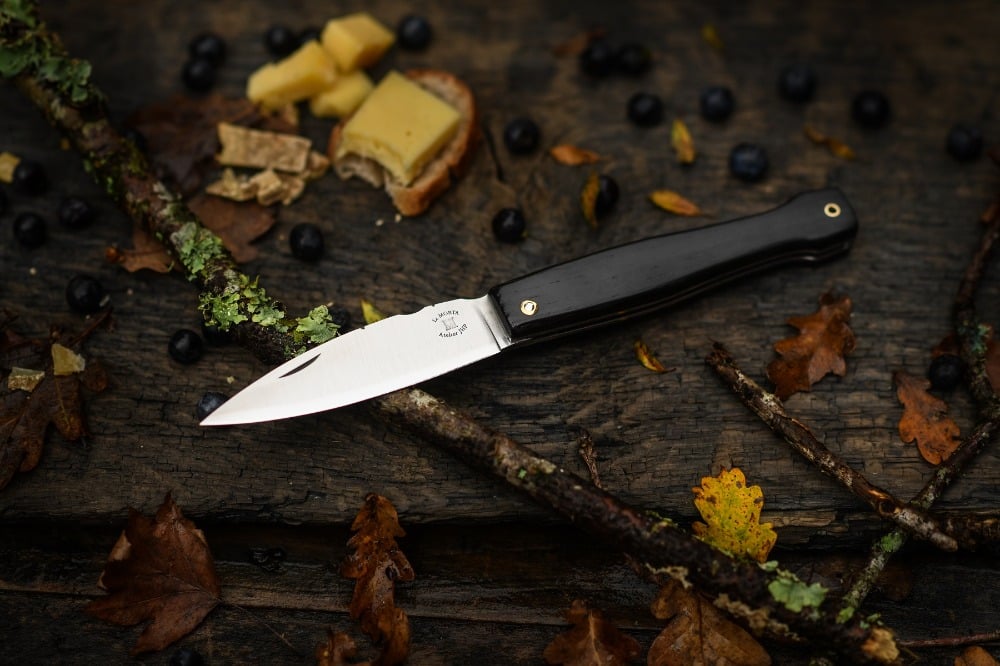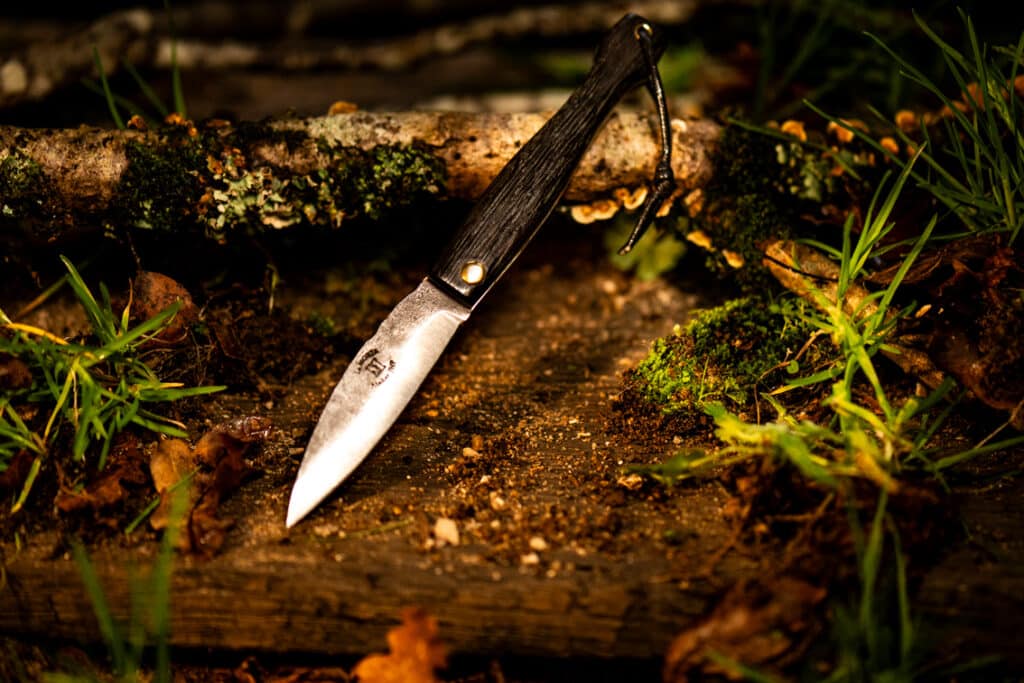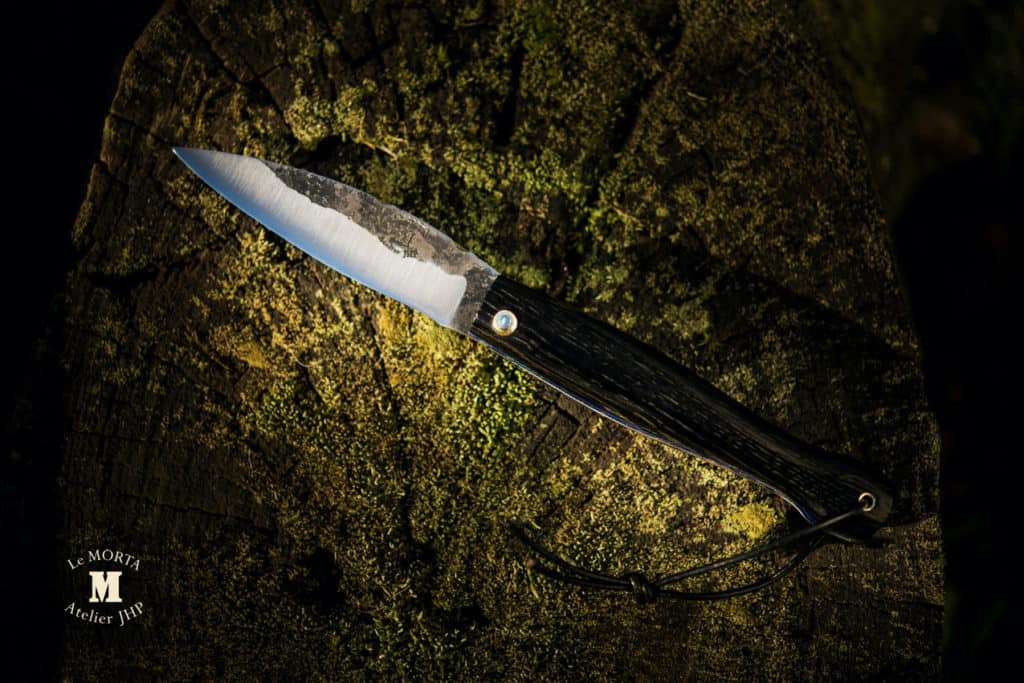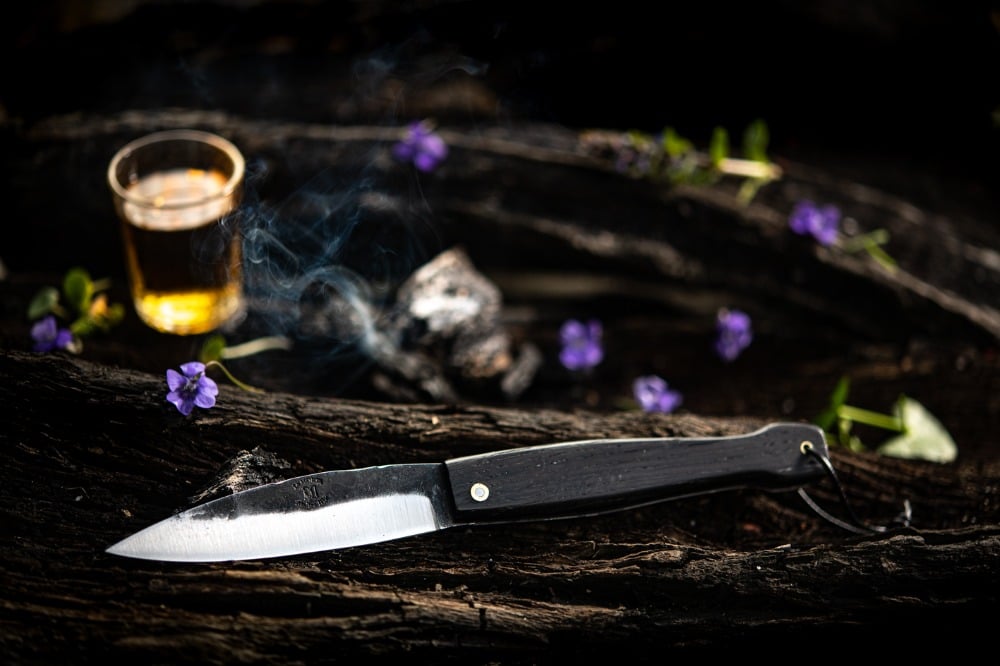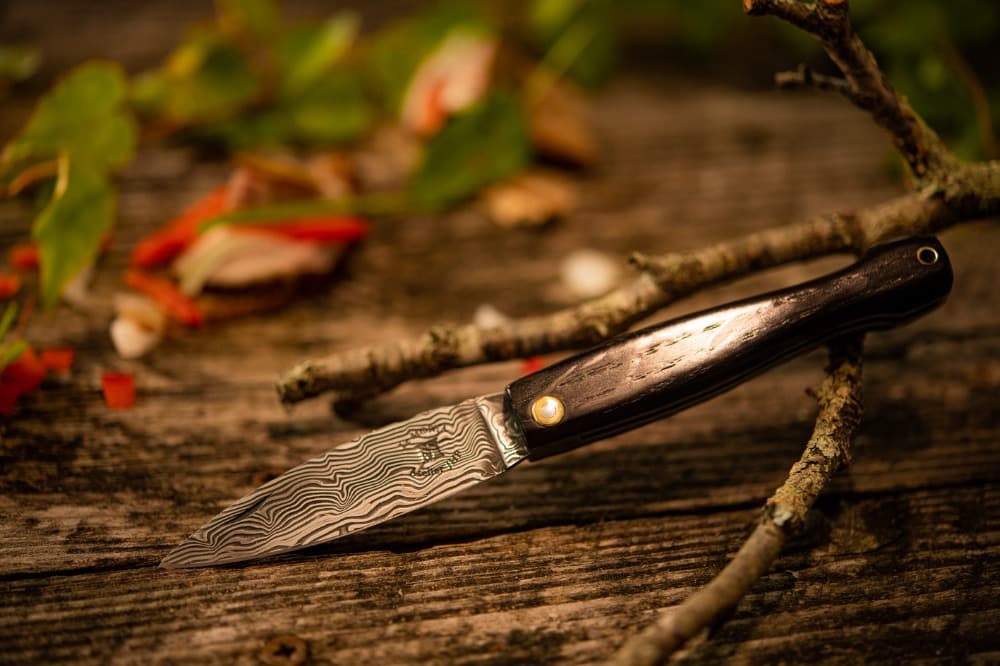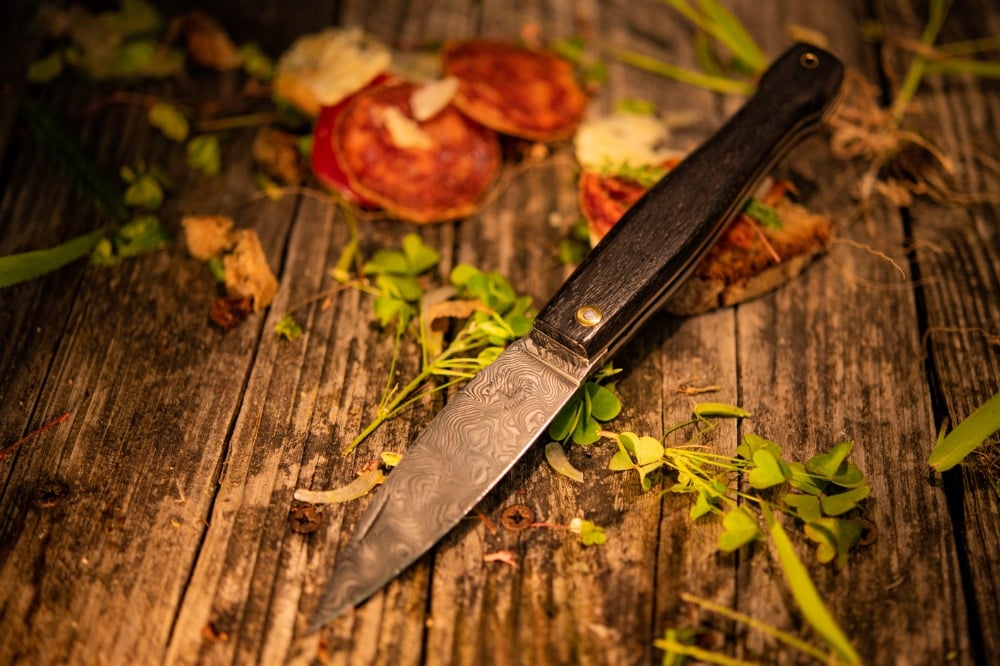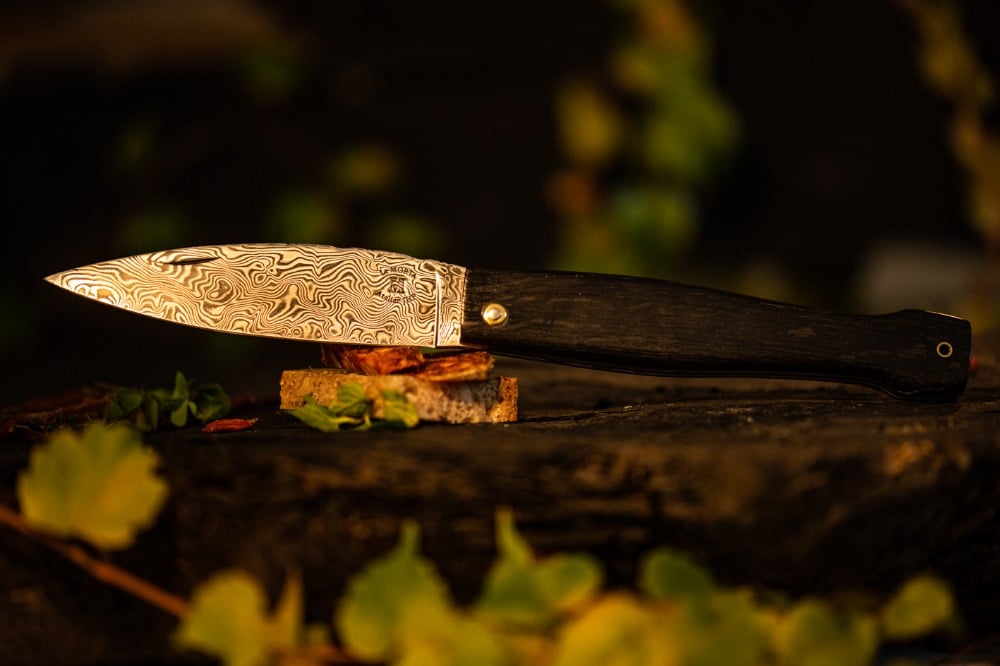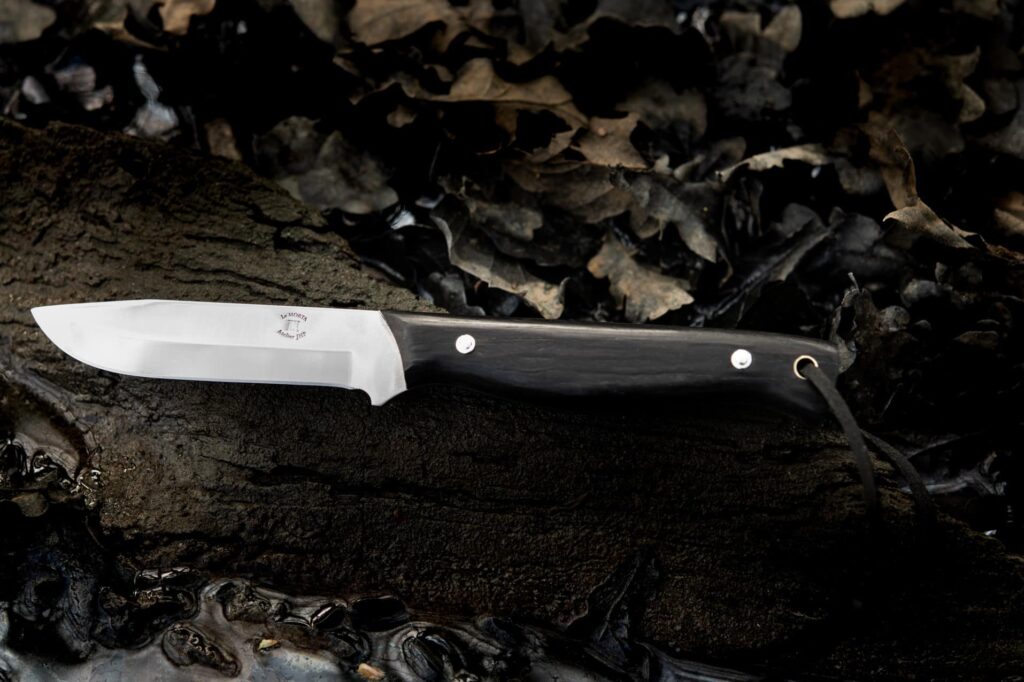Gravity knives, known for their unique opening mechanism that relies on the force of gravity or a simple flick to deploy the blade, have generated considerable debate as to their legality. These once-popular knives are now subject to various legal restrictions in different countries. Let’s find out in this article what laws govern gravity knives around the world, and why they are banned.
What is the history of gravity knives?
Gravity knives originated during World War II, primarily designed for paratroopers who needed a quick-deploy knife that could be operated with one hand.
The defining feature of these knives is their ability to open the blade by the force of inertia or gravity, eliminating the need for manual unfolding. Initially valued for their practicality in urgent or combat scenarios, gravity knives soon became popular for their rapid deployment capabilities. However, their ease of use also led to widespread adoption by unsavory elements, which eventually caught the attention of lawmakers.
Over the decades, the gravity knife became synonymous with a weapon rather than a tool, leading to its classification alongside switchblade knives under various legal frameworks.
In places like New York, the gravity knife was deemed illegal due to its association with crime and violence, reinforced by vague laws like the “wrist-flick test” which led to arbitrary enforcement and a significant number of legal challenges.
Why are gravity knives banned?
The ban on gravity knives primarily stems from their perceived similarity to switchblades and their potential use as weapons. In many jurisdictions, the ability of these knives to be opened swiftly with a simple flick or by the force of gravity raised concerns about their use in criminal activities.
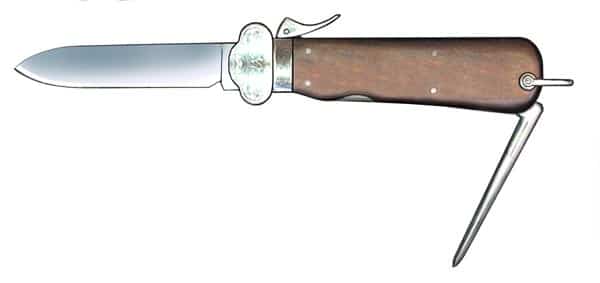
Knife laws categorize gravity knives under the same regulations that govern switchblades, which are restricted due to their automatic opening mechanisms.
For instance, the American Knife and Tool Institute highlights that the misconceptions surrounding the use and purpose of gravity knives have fueled their illegal status in many states.
Lawmakers’ attempts to look tough on crime lead to overly broad and vague laws that cover many types of folding knives, not just gravity knives.
This broad application can criminalize the possession of common tools, affecting not just knife enthusiasts but also tradespeople who use these tools for legitimate purposes.
Why are gravity knife laws different across countries?
Gravity knives, with their mechanism allowing the blade to deploy using the force of gravity or a flick of the wrist, have faced varying legal status worldwide due to differing knife laws.
In the United States, for many years, New York notably enforced a strict ban, interpreting the “wrist flick test” as a benchmark for legality which led to numerous legal battles and controversies. However, recent changes in legislation have sought to rectify what many saw as an overly broad and unjust application of the law, reflecting a broader shift in the American knife community’s advocacy efforts.
In contrast, countries like the UK and Canada have maintained stringent laws where carrying of gravity knives is illegal, largely due to concerns over their potential use in crimes.
The UK specifically bans any knife which can be opened automatically, including gravity knives, under the Offensive Weapons Act. Canadian law also classifies gravity knives under prohibited weapons, making it illegal to buy, sell, or carry them.
What are the legal alternatives to gravity knives?
For those in regions where gravity knives are banned, there are several legal alternatives that offer similar functionality without legal risks.
Folding knives and fixed blade knives, for example, are widely accepted in many jurisdictions and can be used for a range of activities from everyday tasks to outdoor adventures.
At Couteaux Morta, we offer a variety of such knives, each crafted with precision and care to meet the highest standards of quality and legality.
Our folding knives utilize a locking mechanism to ensure safety, while our fixed blade knives are designed for robustness and durability.
Discovering the knife collection.
-

Mini solid Morta
120,00 € This product has multiple variants. The options may be chosen on the product page -

Mini solid morta as forged
210,00 € This product has multiple variants. The options may be chosen on the product page -

Mini Solid Morta Damascus
340,00 € This product has multiple variants. The options may be chosen on the product page
Conclusion
The rules and regulations governing gravity knives are indicative of the wider challenges within knife legislation around the world. For enthusiasts and collectors, knowledge of these laws is necessary for legal compliance and safety. While gravity knives may be restricted in some areas, there are alternatives that remain legal and effective.


